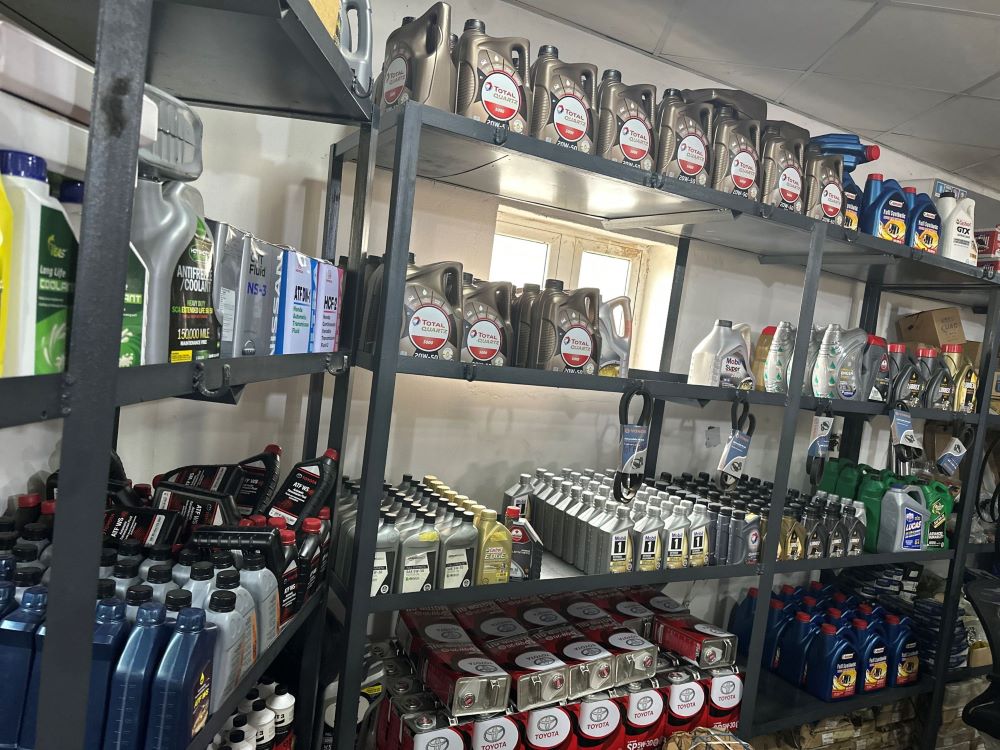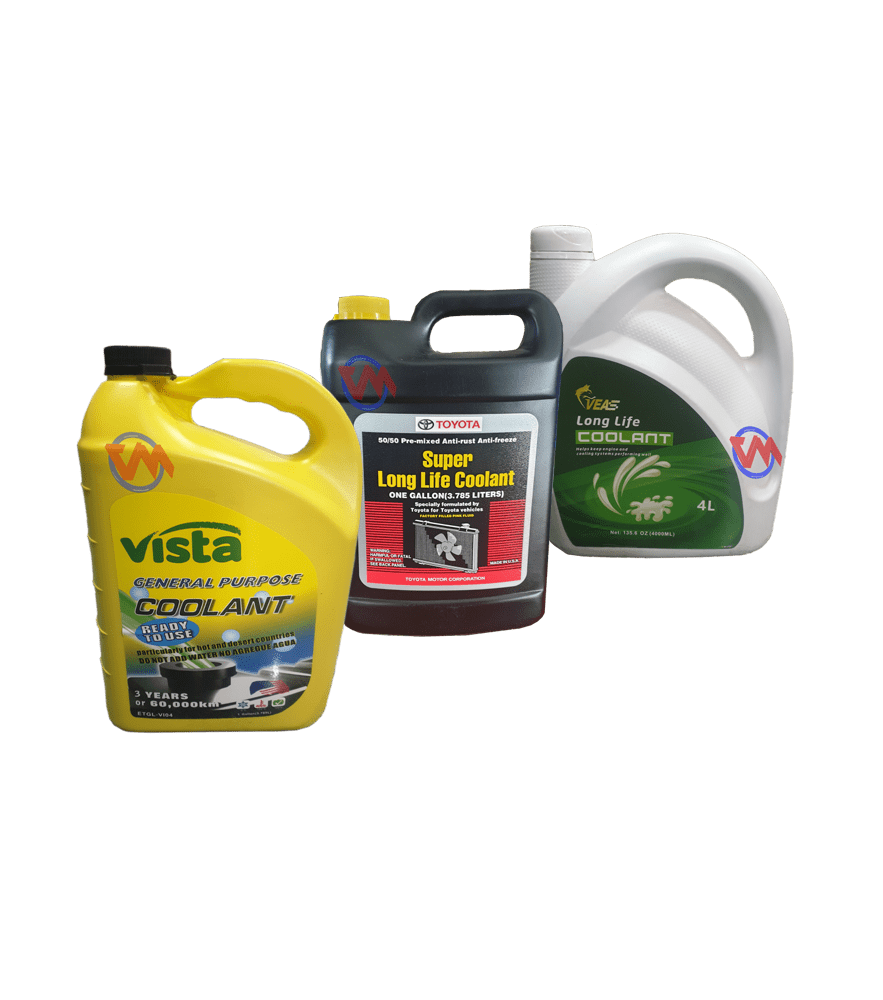Explore the DIFFERENT TYPES OF ENGINE OIL
Table of Contents
Engine oil is a vital lubricant that keeps the internal components of an engine running smoothly. There are several types of engine oil available on the market, each with its own characteristics and recommended applications. In this article, we will explore the different types of engine oil to help you understand which one is best suited for your vehicle.

1. Conventional Oil:
Conventional oil, also known as mineral oil, is the traditional and most widely used type of engine oil. It is derived from crude oil and undergoes refining processes to remove impurities. Conventional oil provides good lubrication and protection for most everyday driving conditions. However, it may require more frequent oil changes compared to synthetic oils.
Key Characteristics of Conventional Oil:
- Composition: Conventional oil is made up of base oils derived from crude oil, along with additives to enhance its performance characteristics.
- Lubrication: It forms a protective layer between moving engine parts, reducing friction and wear. This helps to minimize engine damage and extend its lifespan.
- Viscosity: Conventional oil is available in different viscosity grades, such as 5W-30 or 10W-40, which indicate its flow characteristics at different temperatures. The “W” stands for winter, and the number before it represents the oil’s viscosity at low temperatures, while the number after the “W” represents viscosity at higher temperatures.
- Performance: Conventional oil provides satisfactory performance under normal driving conditions and moderate temperature ranges. However, it may be less effective under extreme temperature or high-stress conditions compared to synthetic oils.
- Price: Conventional oil is generally less expensive than synthetic oils, making it an attractive choice for budget-conscious vehicle owners. However, it may require more frequent oil changes compared to synthetic options.
- Maintenance: It is important to follow the manufacturer’s recommended oil change intervals for conventional oil. Regular oil changes ensure that contaminants, such as dirt and sludge, are removed from the engine and fresh oil is introduced to maintain optimal performance.
- Compatibility: Conventional oil is compatible with most older vehicles and engines that do not have specific requirements for synthetic or high-performance oils. However, it is important to consult the vehicle’s owner manual or manufacturer’s recommendations to ensure the appropriate oil type is used.
- Environmental Impact: Conventional oil is derived from petroleum, a non-renewable resource. The extraction and refining processes associated with conventional oil production can have environmental implications. However, many conventional oils now have additives that help reduce their environmental impact and improve their performance.
Maintenance Considerations:
Regular oil changes are necessary to maintain the performance and longevity of the engine when using conventional oil. The oil change interval varies depending on the vehicle manufacturer’s recommendations and driving conditions. Typically, it is advised to change conventional oil every 3,000 to 5,000 miles (4,800 to 8,000 kilometers) or every three to six months, whichever comes first.
Advantages of Conventional Oil:
- Cost: Conventional oil is generally more affordable compared to synthetic or specialized oils, making it a budget-friendly option for regular maintenance.
- Availability: Conventional oil is widely available at automotive stores, service centers, and gas stations, making it easily accessible for routine oil changes.
- Compatibility: It is compatible with most older engines and vehicles that do not require the enhanced performance benefits of synthetic or specialized oils.
Considerations and Limitations:
- Temperature Extremes: Conventional oil may not perform as well as synthetic oil in extremely hot or cold weather conditions. Synthetic oils offer better viscosity stability under such extremes.
- High-Stress Conditions: In situations where the engine is subjected to heavy loads, towing, or prolonged periods of idling, synthetic or specialized oils may provide better protection and performance.
Conventional oil is a reliable and cost-effective option for regular engine lubrication and protection. It suits most everyday driving conditions and vehicles that do not require specialized oil formulations. However, in cases of extreme temperatures or high-stress conditions, synthetic or specialized oils may offer better performance and longevity. Regular oil changes using the appropriate conventional oil type and adhering to recommended maintenance intervals are crucial to keeping the engine running smoothly and extending its lifespan.
Here are some key characteristics and considerations related to conventional oil:
- Lubrication: Conventional oil provides effective lubrication to the engine’s moving parts, reducing friction and wear. It forms a protective barrier between metal surfaces, preventing direct contact and minimizing damage.
- Viscosity Grades: Conventional oil comes in different viscosity grades, indicated by a combination of numbers and letters (e.g., 10W-30). The first number represents the oil’s viscosity at low temperatures, while the second number indicates its viscosity at high temperatures. This range ensures optimal lubrication in varying weather conditions.
- Performance: While conventional oil provides adequate lubrication for most engines, it may have limitations under extreme conditions. It is less resistant to breakdown at high temperatures and may have reduced flowability during cold starts compared to synthetic oils.
In conclusion, conventional oil is a reliable and widely available option for engine lubrication. While it may have limitations compared to synthetic oils, it is suitable for most everyday driving conditions. Regular oil changes using the recommended viscosity grade are essential to maintain the engine’s performance and longevity. However, for specific vehicles, driving conditions, or performance requirements, alternative oils like synthetic or synthetic blends may offer additional benefits.
2. Synthetic Oil:
Synthetic oil is chemically engineered and offers superior performance and protection compared to conventional oil. It is designed to withstand extreme temperatures, resist breakdown, and provide better lubrication under high-stress conditions. Synthetic oil also flows more easily at low temperatures, enhancing cold start performance. It is commonly recommended for high-performance engines, turbocharged engines, and vehicles that undergo heavy towing or extreme driving conditions.

You may want to ignore the cost and go synthetic on your engine…
Key Characteristics of Synthetic Oil:
1. Superior Lubrication: Synthetic oil offers excellent lubrication properties, reducing friction between moving engine parts. This results in less wear and tear and improved overall engine efficiency.
2. Temperature Resistance: Synthetic oil has a higher tolerance for temperature extremes compared to conventional oil. It maintains its viscosity and flow characteristics better in both extremely hot and cold conditions. This ensures optimal engine protection and performance in varying climates.
3. Oxidation Resistance: Synthetic oil resists oxidation and breakdown better than conventional oil. It remains stable and retains its protective properties over longer periods, reducing the formation of sludge and deposits in the engine.
4. Enhanced Engine Protection: Synthetic oil forms a more durable and resilient protective film on engine components, reducing metal-to-metal contact and minimizing wear. It also provides better resistance to engine deposits, rust, and corrosion.
5. Fuel Efficiency: Synthetic oil’s superior lubricating properties can help improve fuel efficiency by reducing internal friction within the engine. This results in smoother operation and potentially better mileage.
Maintenance Considerations:
Synthetic oil typically offers extended oil change intervals compared to conventional oil. However, it is essential to follow the manufacturer’s recommendations for oil change intervals, as they can vary based on the vehicle, driving conditions, and the specific synthetic oil used. Some synthetic oils may have longer-lasting capabilities, reducing the frequency of oil changes.
Advantages of Synthetic Oil:
1. Performance Under Extreme Conditions: Synthetic oil is highly recommended for high-performance engines, turbocharged engines, and vehicles subjected to heavy loads, towing, or extreme driving conditions. It provides superior protection and lubrication in these demanding situations.
2. Cold-Start Performance: Synthetic oil flows more easily at low temperatures, reducing engine wear during cold starts. This enhances engine responsiveness and reduces engine stress during initial startup.
3. Longevity: Synthetic oil’s resistance to oxidation and breakdown allows it to maintain its performance properties for a more extended period. This means longer-lasting engine protection and potentially reduced maintenance costs.
4. Compatibility: Synthetic oil is compatible with most modern engines, and in many cases, it can be used interchangeably with conventional oil. However, it is always recommended to check the vehicle’s owner’s manual for the recommended oil type.
Considerations and Limitations:
1. Cost: Synthetic oil is generally more expensive than conventional oil due to its advanced manufacturing process and enhanced performance properties. However, its benefits in terms of engine protection and potential fuel efficiency gains can outweigh the higher upfront cost.
2. Age and Condition of the Engine: Older engines or those with high mileage may have worn seals or gaskets that can cause synthetic oil to leak. It is advisable to consult with a mechanic or follow manufacturer recommendations if you plan to switch to synthetic oil in such cases.
Synthetic oil offers superior lubrication, temperature resistance, and engine protection compared to conventional oil. It is especially beneficial for high-performance engines and vehicles subjected to extreme driving conditions. While synthetic oil generally comes at a higher cost, its extended oil change intervals and potential fuel efficiency gains can offset the initial investment. Consult the vehicle’s owner’s manual or seek professional advice to determine if synthetic oil is suitable for your engine and driving needs. Regular oil changes with the appropriate synthetic oil type and adherence to maintenance intervals are vital for maintaining engine performance and longevity.
3. Synthetic Blend Oil:
As the name suggests, synthetic blend oil is a mixture of synthetic and conventional oil. It offers some of the benefits of synthetic oil, such as improved protection and performance, while remaining more affordable than full synthetic oil. Synthetic blend oil can be a suitable choice for vehicles that require added protection but do not necessitate the full benefits of synthetic oil.
Conclusion:
Choosing the right type of engine oil for your vehicle is essential to ensure optimal engine performance, longevity, and fuel efficiency. Consider factors such as the vehicle’s age, mileage, driving conditions, and manufacturer’s recommendations when selecting engine oil. Regular oil changes using the appropriate oil type will help keep your engine running smoothly and extend its lifespan.






Leave a comment